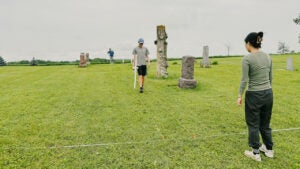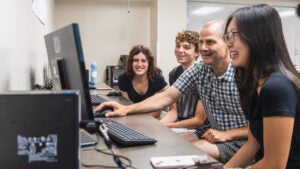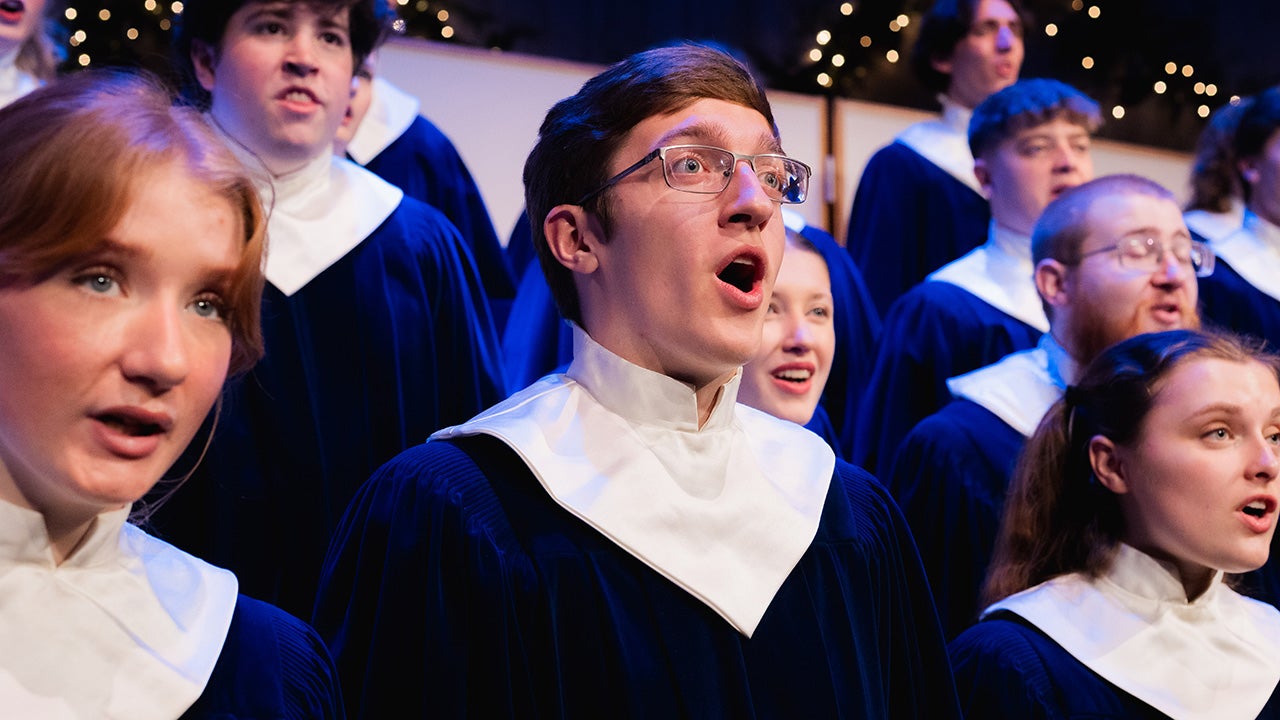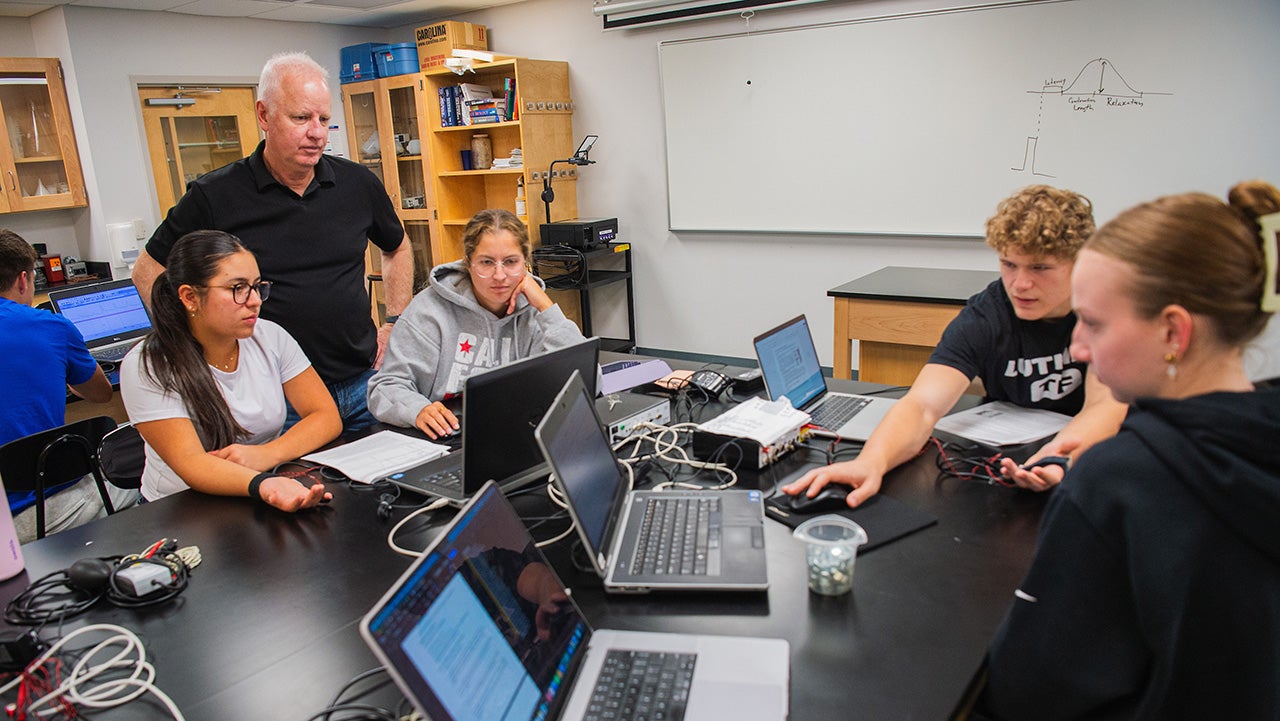Anthropology students use remote sensing technology to locate unmarked graves in northeast Iowa
A team of three Luther College anthropology students led by Colin Betts, professor of anthropology, worked to identify unmarked graves at three pioneer cemeteries in Winneshiek County this summer.

Luther College student Benson Newhouse uses a gradiometer on July 15, 2025, at the Big Canoe Norwegian Methodist Cemetery near Highlandville, Iowa.
Evan McElroy, Benson Newhouse and Rebecca Zheng used advanced remote sensing technology to identify unmarked burial sites without disturbing the ground, an effort that reflects a growing movement in archaeology to adopt non-invasive methods for sensitive and historically significant investigations.
“This summer we learned how to use remote sensing. I hadn’t had any experience with this equipment previously, nor the software involved in processing the data and how to analyze it, so it was a great opportunity,” Newhouse said.
The students conducted their efforts in three cemeteries: Big Canoe Norwegian Methodist, Springwater Cemetery and Crossroads/Metcalf Cemetery. These locations were selected for their high likelihood of containing unmarked graves. By combining survey-grade GPS mapping with ground-based sensing technologies, the students sought to detect subsurface anomalies that may indicate burial sites.
The students used ground penetrating radar, soil resistivity and a magnetic gradiometer to survey the cemeteries. Each of these technologies offer different types of insights into what may lie beneath the surface. When weather was favorable, high-quality data was collected. In several cases, the technology revealed patterns consistent with unmarked burials.
The initiative was partially inspired by the hopes to eventually locate unmarked graves at former Indigenous boarding schools in Iowa.

Three Luther College anthropology students and Colin Betts, professor of anthropology, work to identify unmarked graves at pioneer cemeteries in Winneshiek County.
“These sites are part of a painful and often overlooked chapter in American history, where Native children were forcibly removed from their families and communities, and where many died and were buried in unmarked graves,” Betts said. “The research also has relevance in identifying unmarked graves in historically Black and slave cemeteries.”
Students were deeply involved in every step, from data collection and equipment handling to interpreting complex geophysical results. In some cases, the data suggested the likely presence of unmarked graves. In others, results were inconclusive, requiring careful interpretation.
The findings from this summer’s work will be presented by the student researchers during the 2025-26 academic year.
Related Posts

“Nordic Choir has an exciting program to share with audiences from Iowa City to Orlando,” said Andrew Last, associate professor of music and director of choral activities.

Nearly 570 students were named to Luther College’s Fall 2025 Dean’s List.
Contact Information
Michelle Volkmann
Media Relations Specialist
Phone: 563-387-1417